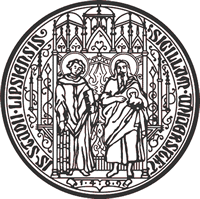The Collaborative Research Centre 1052 “Obesity Mechanisms” was established in 2013 with funding from the German Research Foundation (DFG). The doctoral researcher position is limited to 3 years. The salary is paid according to the German TV-L system (the salary agreement for public service employees).
Supervisor: Prof. Dr. Norbert Sträter
More Details:
About the CRC1052
The Collaborative Research Center 1052 “Obesity Mechanisms” was established in 2013 with funding from the German Research Foundation (DFG). The CRC1052 combines interdisciplinary basic and clinical research across biochemistry, biophysics and chemistry, endocrinology, neuroscience, paediatrics, and cardiology. It aims to provide structured doctoral training centrally aligned in three main research areas – A, Overeating, B, Fat deposition and inflammation, and C, Adipokines. With the successful extension for a 3rd funding period to 2024, we are looking for highly motivated candidates to study the complex and multifactorial disorder mechanisms of obesity.
Aim of the PhD project:
Prof Dr. Norbert Sträter is seeking a highly motivated PhD student to fill the doctoral researcher position of a DFG-funded project (CRC project Z6) focusing on Computational and crystallographic peptide-based fragment screening. Project Z6 supports the CRC in providing computational and experimental information on the structure and function of the studied proteins, in particular concerning (i) understanding of the molecular basis of protein function and malfunction, (ii) structure-based drug development, and (iii) characterizing disease-causing mechanisms of protein mutations associated with obesity. Specifically, we will use structural biology approaches such as X-ray crystallography or computation. This new core project aims to establish an iterative loop of computational modeling, structural biology, and biochemical characterization to determine the functional mechanism of genetic variations. Ultimately, these studies can contribute to the development of effective treatment strategies.
How to apply
For further information, please contact the lead supervisor, Prof Sträter, before applying [Email Address Removed]
To apply for the positions applicants should complete the Application form and include a full academic CV, publication list (if any), copies of your degree certificates and contact details of two referees. The applications will be accepted until 15th of September via e-mail to the CRC office [Email Address Removed]

 Continue with Facebook
Continue with Facebook



